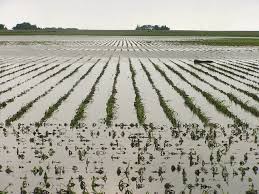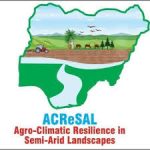The Federal Government has issued a warning that this year’s flooding is expected to impact at least 31 states and 148 local government areas across Nigeria from April to November. Minister of Water Resources and Sanitation, Professor Joseph Terlumun Utsev, highlighted that 148 local government areas in 31 states are deemed highly susceptible to flooding in 2024, while 249 local government areas in 36 states and Abuja fall under moderate flood risk areas.
At the recent official presentation of the 2024 Annual Flood Outlook (AFO) in Abuja, Utsev listed the high-risk states, including Adamawa, Akwa Ibom, Anambra, Bauchi, Bayelsa, Benue, Borno, Cross River, Delta, Ebonyi, Edo, Imo, Jigawa, Kaduna, Kano, Katsina, Kebbi, Kogi, Kwara, Lagos, Nasarawa, Niger, Ogun, Ondo, Osun, Oyo, Plateau, Rivers, Sokoto, Taraba, and Yobe. He emphasized the need for proactive measures such as preparedness, early warning systems, and community engagement to mitigate potential flood impacts in these areas.
While flood alerts are issued annually, there is often a tendency for people to disregard them. In November 2022, the National Emergency Management Agency (NEMA) issued early warnings to states about the likelihood of severe flooding in 2023 if precautionary measures were not taken. The Nigeria Hydrological Services Agency (NIHSA) and the Nigerian Meteorological Agency (NiMET) also provided timely warnings and weather advisories to prevent the 2022 flood disaster. Unfortunately, these warnings were ignored by state and local governments, resulting in significant consequences.
Severe flooding in Nigeria is often exacerbated by climate change and various human activities, including land reclamation, tidal surges, river or dam overflow, volcanic eruptions, poor urban planning, obstruction of drainage channels, and persistent heavy rainfall. Additionally, some individuals even construct buildings on top of drainage channels, further contributing to the flooding problem.
These factors pose significant challenges for the environment. The severe flooding experienced in 2012 resulted in losses exceeding N2 trillion for the nation. Agriculture and food security bear the brunt of these calamities. During the 2022 flooding, considered one of the worst in Nigeria in over a decade, hundreds of thousands of hectares of farmland were destroyed, leading to shortages of essential crops such as yam, rice, cassava, plantain, and livestock.
The 2022 flooding affected approximately 34 states and impacted over 2.5 million people, causing many to lose all their belongings. More than 200,000 houses sustained either partial or complete damage, while over 600 individuals reportedly lost their lives, and over 1.5 million people were displaced from their homes. States like Anambra, Bayelsa, and Kogi were particularly hard hit, with numerous homes, schools, and shops submerged. Many displaced individuals sought refuge in internally displaced persons camps.
Dr. Utsev highlighted that the World Bank estimated the total economic damage from the 2022 flood to be approximately $6.68 billion.





